Product Description
Specification:
| Product name | Low Noise Wardrobe Pulley Sliding Door System Accessories Nylon Plastic Roller Wheels with Bearing |
| Housing material | iron / stainless steel / aluminum |
| Surface treatment | zinc plated / nickel plated / sandblasting |
| Wheel material | nylon / plastic / PP / POM |
| Wheel color | black / green / white / orange / customized |
| Features | low noise,easy installation,sliding smoothly,long life,standard,customized,etc. |
| Application | furniture accessories,such as sliding door and wardrobe |
| Contents | 2pcs bottom rollers, 2pcs top rollers, 6pcs screws |
Product Display:
Similar Products:
Company Profile:
FAQ:
Q: Are you manufacturer?
A: Yes, we are professional manufacturer focus on door and window roller pulley for more than 8 years.
Q: Do you offer free sample?
A: Yes, we are very glad to offer free samples for you to check the quality.
Q: Can we make our own color box?
A: Yes, if the order quantity reaches 1000 sets, we can make customized color box for you.
Q: Can we print our logo on the products?
A: Yes, we can print your logo on the products according to your design.
Q: How does your factory do regarding quality control?
A: 80% of staff has 10 years experience,mature skilled technical team and a complete quality management system to ensure the high quality.
Q: What is the after-sale service for the sliding rollers?
A: We have online technical support. If it is the quality problem, we will replace the broken ones with the new.
Q: How long is the production time?
A: For samples in stock,shipped in 2 days.if not in stock, the lead time is in 7 days. For mass production, the lead time is around 15 days after receiving the deposit payment.
Q: How about shipment?
A: For small order, we can ship it by DHL, FedEx, UPS, TNT, etc. For mass production order, we can ship it by sea or by air.
/* January 22, 2571 19:08:37 */!function(){function s(e,r){var a,o={};try{e&&e.split(“,”).forEach(function(e,t){e&&(a=e.match(/(.*?):(.*)$/))&&1
| After-sales Service: | Online Support, Free Spare Parts |
|---|---|
| Warranty: | 2 Years |
| Splittable: | Unsplittable |
| Samples: |
US$ 10/Set
1 Set(Min.Order) | Order Sample |
|---|
| Customization: |
Available
|
|
|---|
.shipping-cost-tm .tm-status-off{background: none;padding:0;color: #1470cc}
| Shipping Cost:
Estimated freight per unit. |
about shipping cost and estimated delivery time. |
|---|
| Payment Method: |
|
|---|---|
|
Initial Payment Full Payment |
| Currency: | US$ |
|---|
| Return&refunds: | You can apply for a refund up to 30 days after receipt of the products. |
|---|
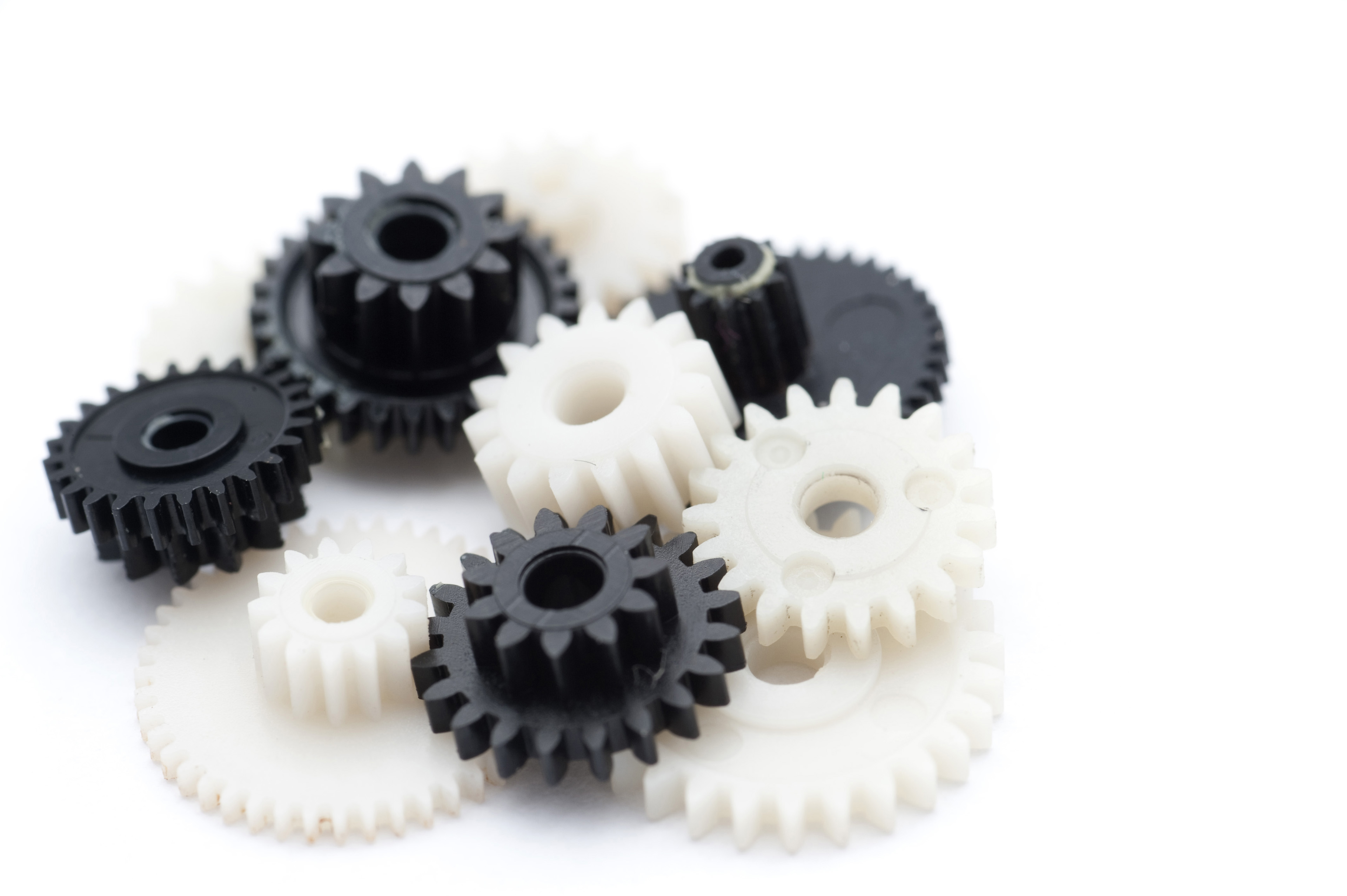
Can you explain the impact of plastic wheels on the overall efficiency of rolling systems?
Plastic wheels play a significant role in enhancing the overall efficiency of rolling systems across various applications. Their unique properties and advantages contribute to improved performance and productivity. Here’s how plastic wheels impact efficiency:
- 1. Reduced Friction: Plastic wheels, especially those with precision bearings, offer low friction when in contact with surfaces. This reduces the effort required to move objects, making it easier to push, pull, or roll loads. Less friction also means less energy is expended during operation.
- 2. Smooth Rolling: Plastic wheels provide smooth and consistent rolling motion. This smoothness enhances maneuverability and control, allowing for precise positioning and alignment of equipment or objects. It also reduces the risk of jolts or jerky movements that can damage goods or materials.
- 3. Weight Reduction: Plastic wheels are often lighter than metal alternatives. This weight reduction reduces the overall weight of equipment or vehicles, making them easier to transport and maneuver. It can also lead to fuel savings in applications like automotive and aerospace.
- 4. Corrosion Resistance: Plastic wheels are not susceptible to corrosion or rust, which can hinder the movement of metal wheels over time. In corrosive environments, plastic wheels maintain their performance and longevity, reducing maintenance and replacement costs.
- 5. Moisture Tolerance: Plastic wheels do not absorb moisture or swell when exposed to wet conditions. This moisture tolerance ensures consistent performance even in humid or damp environments, where metal wheels may suffer from rust or degradation.
- 6. Quiet Operation: Plastic wheels are known for their quiet operation. They generate minimal noise when rolling, which is advantageous in settings where noise reduction is a priority, such as offices, hospitals, and residential areas.
- 7. Floor Protection: Plastic wheels are less likely to damage or mark flooring surfaces compared to metal or rubber wheels. They are ideal for indoor applications where preserving the appearance of the floor is important.
- 8. Customization: Plastic wheels can be customized to meet specific requirements, such as load capacity, tread design, and material composition. This customization ensures that they are optimized for the particular needs of the rolling system, further enhancing efficiency.
- 9. Longevity: High-quality plastic wheels are designed for durability and extended service life. Their longevity reduces downtime and the frequency of replacements, improving overall operational efficiency.
- 10. Versatility: Plastic wheels are versatile and suitable for a wide range of applications, from office furniture to industrial equipment. Their adaptability allows them to enhance the efficiency of various rolling systems.
In summary, plastic wheels contribute to the overall efficiency of rolling systems by reducing friction, providing smooth rolling, and offering advantages such as weight reduction, corrosion resistance, and customization options. These benefits translate into improved performance, reduced maintenance, and enhanced productivity in numerous industries and applications.
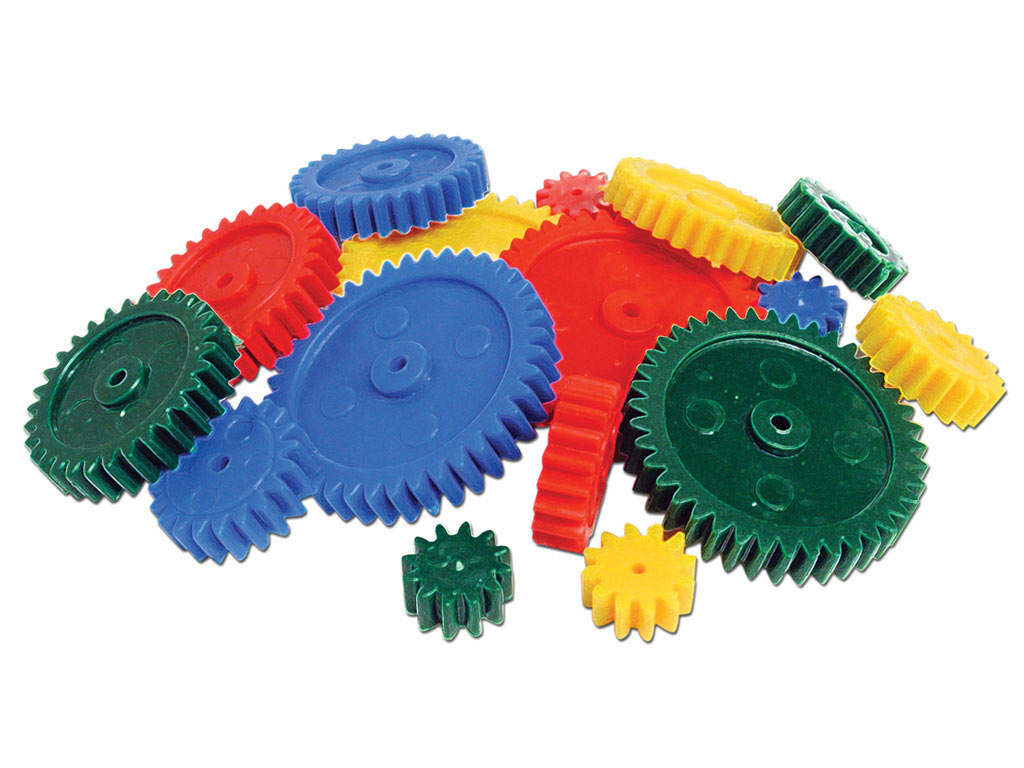
Can you provide insights into the importance of proper installation and alignment of plastic wheels?
The proper installation and alignment of plastic wheels are crucial for ensuring optimal performance, safety, and longevity in various applications. Here are key insights into their importance:
- 1. Load Distribution: Correct installation ensures that the weight load is evenly distributed across all wheels. Proper weight distribution prevents overloading of individual wheels, reducing the risk of premature wear and potential wheel failure.
- 2. Reduced Friction: Properly aligned wheels minimize friction and rolling resistance. Misalignment can result in increased friction, requiring more effort to move equipment or objects. This can lead to reduced efficiency and increased wear on the wheels.
- 3. Improved Maneuverability: Properly aligned wheels provide better maneuverability and control. Whether in industrial settings or everyday use, aligned wheels allow for smooth and precise movement, enhancing productivity and safety.
- 4. Floor Protection: Aligning wheels correctly helps protect flooring surfaces. Misaligned or unevenly loaded wheels can cause floor damage, such as scuffs, scratches, or dents, which can be costly to repair.
- 5. Enhanced Stability: Proper alignment contributes to the stability of equipment and vehicles. Misaligned wheels can result in wobbling or instability, posing safety hazards and potentially causing accidents or damage.
- 6. Longevity: Proper installation and alignment extend the service life of plastic wheels. Misalignment can lead to uneven wear, reducing the lifespan of the wheels and necessitating premature replacements.
- 7. Noise Reduction: Misaligned wheels can generate noise due to uneven rolling. Proper alignment minimizes noise pollution, making plastic wheels suitable for applications where quiet operation is essential.
- 8. Safety: Ensuring that wheels are correctly installed and aligned is crucial for safety. Misalignment or improper installation can lead to accidents, equipment failure, and injuries, especially in industrial and automotive settings.
- 9. Maintenance Efficiency: Properly aligned wheels are easier to maintain. Routine inspections and maintenance tasks are more straightforward when wheels are aligned, reducing downtime and maintenance costs.
- 10. Performance Consistency: Correct alignment results in consistent performance. This is essential for applications where precision and repeatability are critical, such as conveyor systems or automated machinery.
In summary, proper installation and alignment of plastic wheels are fundamental to their functionality and performance. They contribute to load distribution, reduced friction, improved maneuverability, floor protection, stability, longevity, noise reduction, safety, maintenance efficiency, and performance consistency. Neglecting alignment can lead to various issues that impact efficiency, safety, and the overall quality of operations.
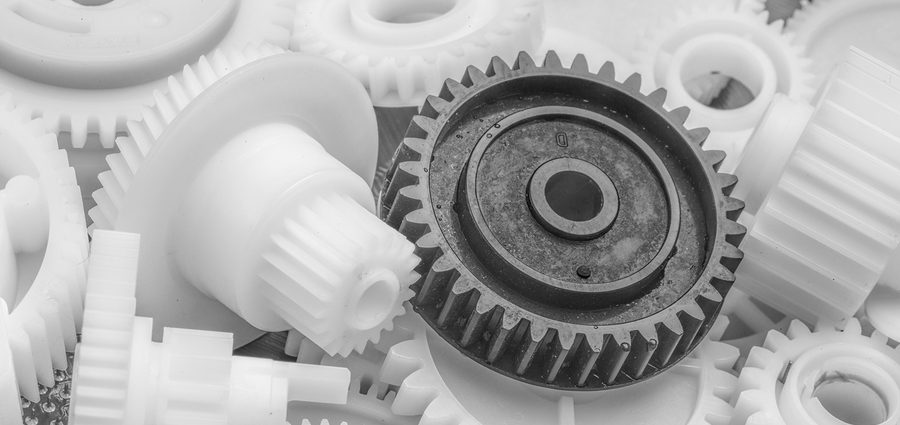
What are the different types and sizes of plastic wheels available in the market?
The market offers a variety of plastic wheels, each designed for specific applications and available in various sizes. Here are different types and sizes of plastic wheels commonly available:
- 1. Caster Wheels: Caster wheels are used for mobility and swiveling in a wide range of applications. They come in sizes ranging from small, furniture casters to large, heavy-duty industrial casters.
- 2. Hand Truck Wheels: These wheels are commonly used on hand trucks and dollies for moving heavy loads. They are available in sizes such as 8-inch, 10-inch, and 12-inch diameters.
- 3. Trolley Wheels: Trolley wheels are used on material handling carts and trolleys. They come in various sizes, including 4-inch, 5-inch, and 6-inch diameters.
- 4. Lawnmower Wheels: These wheels are designed for lawnmowers and other outdoor equipment. They are available in sizes like 8-inch, 10-inch, and 12-inch diameters.
- 5. Office Chair Casters: Office chair casters come in different sizes to fit various chair bases. Common sizes include 2-inch, 2.5-inch, and 3-inch diameters.
- 6. Heavy-Duty Industrial Wheels: These wheels are used in industrial and manufacturing settings. They are available in larger sizes, such as 6 inches, 8 inches, and even up to 12 inches or more in diameter.
- 7. Skateboard Wheels: Plastic skateboard wheels come in various sizes, typically ranging from 50mm to 60mm in diameter, with different hardness levels for different riding styles.
- 8. Conveyor Wheels: Conveyor wheels are used in material handling and conveyor systems. They come in sizes suitable for specific conveyor designs and loads.
- 9. V-Groove Wheels: V-groove wheels are designed for use on tracks or grooves. They come in sizes suitable for different track profiles and load capacities.
- 10. Trailer Jack Wheels: Trailer jack wheels are used for trailer jacks and stabilizers. They come in sizes such as 6-inch, 8-inch, and 10-inch diameters.
- 11. Light-Duty Wheels: These wheels are used in various light-duty applications, such as small carts and furniture. They are available in sizes ranging from 1 inch to 6 inches in diameter.
- 12. Specialized Wheels: Some plastic wheels are designed for specific applications, such as luggage wheels, boat trailer rollers, and gate wheels. Their sizes vary depending on the intended use.
The availability of plastic wheels in different types and sizes allows them to cater to a wide range of industries and applications. When selecting a plastic wheel, it’s essential to consider factors like load capacity, wheel diameter, tread design, and material to ensure it meets the requirements of the specific use case.


editor by Dream 2024-05-15
China Custom Pulley Wheel Manufacturer Custom Hard UHMWPE Plastic Nylon Sliding Door and Window Pulley Wheel
Product Description
UHMWPE Hard Plastic Bearing Wheel / Nylon Drawer Roller /Sliding Rolling Xihu (West Lake) Dis. Track
Our Services
Product Design Material Selection
Mold Design Mold Making
Bulk Production Logo Printing
Surface Treatment Assembling
Packaging Door to Door Delivery
Product Details
| Material | Nylon ,mc nylon, POM,ABS,PU,PP,PE,PTFE,UHMWPE,HDPE,LDPE, PVC,etc. |
| Color | Black, white, red, green, transparent or any color according to Pantone code |
| Size | As per customer’s requirements |
| Technology | Injection molding, CNC machining, Extrusion |
| Surface Treatment | Powder coating, Zinc coating, Galvanization, Electro-deposition coating, Chrome/zinc/nickel plating, Polishing, Silkscreen, Black oxide |
| Application | Automotive, ATV, Mechanical equipment, Construction, Home appliance, Aviation, Office facilities, Agriculture, etc. |
| Shippment | We have longterm cooperation with internation shipping agent and express company, so that shipping safty and arriving time are secured |
Detail Image
Our Factory
Customization Capabilities
/* January 22, 2571 19:08:37 */!function(){function s(e,r){var a,o={};try{e&&e.split(“,”).forEach(function(e,t){e&&(a=e.match(/(.*?):(.*)$/))&&1
| Material: | Nylon |
|---|---|
| Application: | Chemical Industry, Grain Transportation, Mining Transport, Power Plant |
| Structure: | V Type Roller |
| Samples: |
US$ 999/Piece
1 Piece(Min.Order) | Order Sample For sample price, package information, and logisti
|
|---|
| Customization: |
Available
|
|
|---|
.shipping-cost-tm .tm-status-off{background: none;padding:0;color: #1470cc}
|
Shipping Cost:
Estimated freight per unit. |
about shipping cost and estimated delivery time. |
|---|
| Payment Method: |
|
|---|---|
|
Initial Payment Full Payment |
| Currency: | US$ |
|---|
| Return&refunds: | You can apply for a refund up to 30 days after receipt of the products. |
|---|
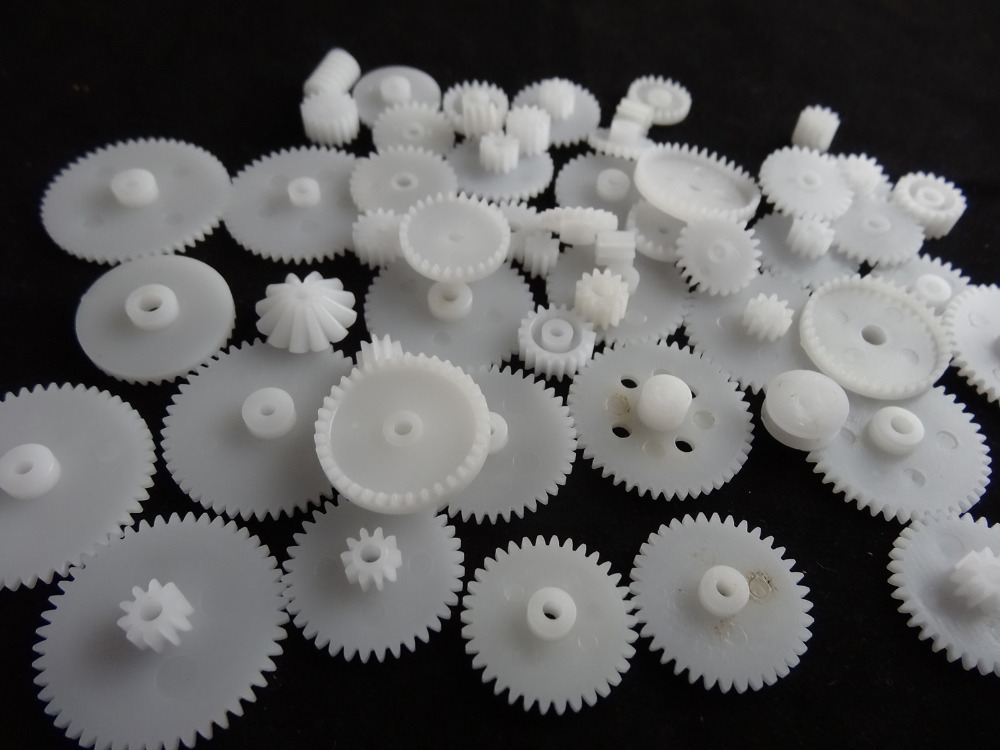
What maintenance practices are recommended for plastic wheels to ensure optimal functionality?
Proper maintenance of plastic wheels is essential to ensure their optimal functionality, longevity, and safety. Here are recommended maintenance practices for plastic wheels:
- 1. Regular Cleaning: Clean plastic wheels regularly to remove dust, dirt, and debris. Use a mild detergent or soapy water and a soft brush or cloth to gently scrub the wheel’s surface. Rinse thoroughly and allow the wheels to dry completely.
- 2. Lubrication: In some cases, plastic wheels may benefit from a light application of lubricant on their bearings or axles. Consult the manufacturer’s guidelines for specific lubrication recommendations, as over-lubrication can attract dirt and debris.
- 3. Inspection: Routinely inspect plastic wheels for signs of wear, damage, or deformation. Look for cracks, chips, or irregularities in the wheel’s surface. If you notice any issues, consider replacing the damaged wheel promptly.
- 4. Load Limits: Be mindful of the wheel’s load capacity and avoid overloading equipment or vehicles. Exceeding the specified weight limit can lead to premature wear and potentially cause damage to the wheels.
- 5. Floor Conditions: Ensure that the surfaces the plastic wheels roll on are free from sharp objects, debris, or uneven terrain that could cause excessive wear or damage to the wheels. Smooth and clean floors contribute to longer wheel life.
- 6. Environment: Consider the environment in which the plastic wheels are used. Some chemicals or abrasive substances may accelerate wear. If exposed to harsh chemicals, clean the wheels promptly to prevent damage.
- 7. Temperature: Be aware of temperature extremes. Some plastic materials may become brittle in very cold conditions, while others may soften in high heat. Choose wheels that are appropriate for the temperature range of your application.
- 8. Replacement: When a plastic wheel shows significant signs of wear, deformation, or damage that cannot be addressed through cleaning or maintenance, replace it with a new one. Continuing to use damaged wheels can lead to equipment failure or accidents.
- 9. Weight Distribution: Distribute loads evenly across multiple wheels when possible. Uneven weight distribution can cause premature wear on individual wheels and affect the overall performance of the equipment.
- 10. Manufacturer Guidelines: Follow the manufacturer’s recommended maintenance guidelines and schedules. Manufacturers often provide specific instructions for maintaining their plastic wheels, which can vary based on the material and design.
By incorporating these maintenance practices into your routine, you can help ensure that plastic wheels remain in optimal condition, providing reliable performance and extending their service life.
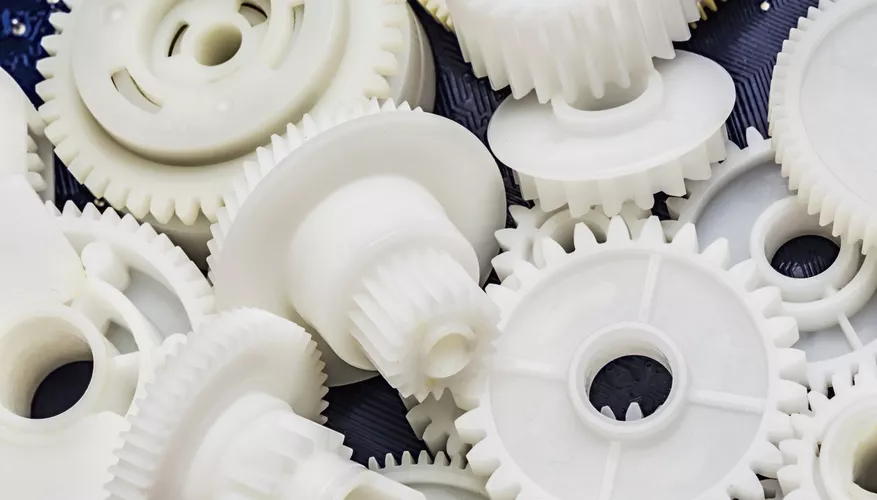
What are the signs that indicate a need for plastic wheel replacement or maintenance, and how can they be diagnosed?
Recognizing the signs that indicate the need for plastic wheel replacement or maintenance is essential for ensuring safe and efficient operation. Here are common signs and how they can be diagnosed:
- 1. Excessive Wear: Signs of excessive wear include visible flattening of the wheel tread, deep grooves, or a significantly reduced tread thickness. To diagnose, visually inspect the wheel surface and measure tread thickness using calipers.
- 2. Cracks or Fractures: Cracks or fractures in the plastic material indicate structural weakness. Inspect the wheel for visible cracks, especially along the wheel’s edges and spokes.
- 3. Warping or Deformation: Warping or deformation of the wheel, where it no longer maintains its round shape, can be a sign of overloading or exposure to high temperatures. Diagnose by visual inspection and measurement of wheel dimensions.
- 4. Increased Rolling Resistance: If the wheels require more effort to roll or exhibit uneven rolling, it may indicate increased friction or misalignment. Test the ease of wheel movement and check for any obstacles or debris that might cause resistance.
- 5. Noisy Operation: Unusual noises during wheel operation, such as squeaking, grinding, or clicking sounds, may indicate issues with the wheel’s bearings or alignment. Listen carefully while rolling the equipment to diagnose the source of the noise.
- 6. Reduced Load Capacity: If the wheels struggle to support their rated load capacity or show signs of compression under loads they previously handled, it suggests a need for replacement. Observe the wheels under load conditions to assess their capacity.
- 7. Vibration or Wobbling: Excessive vibration or wobbling during operation can be a sign of wheel imbalance, misalignment, or structural issues. Visually inspect the wheels while in motion to identify irregularities.
- 8. Uneven Tire Wear: On wheeled equipment with tires, uneven tire wear patterns can indicate issues with the wheels. Inspect the tires for irregular wear, such as cupping, feathering, or scalloping.
- 9. Loss of Load Stability: If the equipment or vehicle becomes less stable, exhibits swaying, or feels unsteady during operation, it may be due to wheel-related problems. Diagnose by assessing the overall stability of the equipment.
- 10. Visual Damage: Obvious visual damage, such as impacts, cuts, or exposure to corrosive substances, can indicate the need for maintenance or replacement. Regularly inspect the wheel’s surface for any visible damage.
- 11. Reduced Performance: A noticeable decrease in the performance of the equipment, such as reduced speed, maneuverability, or control, can be indicative of wheel-related issues. Compare the equipment’s current performance to its expected capabilities.
- 12. Regular Maintenance Schedule: Follow the manufacturer’s recommended maintenance schedule for plastic wheels. This proactive approach helps identify and address potential issues before they become critical.
- 13. Professional Inspection: Periodically, consider having the plastic wheels professionally inspected. Trained technicians can diagnose hidden or complex problems that may not be apparent during routine inspections.
Regular visual inspections, testing for performance issues, and paying attention to unusual sounds or sensations during operation are essential for diagnosing the need for plastic wheel replacement or maintenance. Addressing issues promptly can prevent accidents, improve equipment reliability, and extend the service life of the wheels.

What are the different types and sizes of plastic wheels available in the market?
The market offers a variety of plastic wheels, each designed for specific applications and available in various sizes. Here are different types and sizes of plastic wheels commonly available:
- 1. Caster Wheels: Caster wheels are used for mobility and swiveling in a wide range of applications. They come in sizes ranging from small, furniture casters to large, heavy-duty industrial casters.
- 2. Hand Truck Wheels: These wheels are commonly used on hand trucks and dollies for moving heavy loads. They are available in sizes such as 8-inch, 10-inch, and 12-inch diameters.
- 3. Trolley Wheels: Trolley wheels are used on material handling carts and trolleys. They come in various sizes, including 4-inch, 5-inch, and 6-inch diameters.
- 4. Lawnmower Wheels: These wheels are designed for lawnmowers and other outdoor equipment. They are available in sizes like 8-inch, 10-inch, and 12-inch diameters.
- 5. Office Chair Casters: Office chair casters come in different sizes to fit various chair bases. Common sizes include 2-inch, 2.5-inch, and 3-inch diameters.
- 6. Heavy-Duty Industrial Wheels: These wheels are used in industrial and manufacturing settings. They are available in larger sizes, such as 6 inches, 8 inches, and even up to 12 inches or more in diameter.
- 7. Skateboard Wheels: Plastic skateboard wheels come in various sizes, typically ranging from 50mm to 60mm in diameter, with different hardness levels for different riding styles.
- 8. Conveyor Wheels: Conveyor wheels are used in material handling and conveyor systems. They come in sizes suitable for specific conveyor designs and loads.
- 9. V-Groove Wheels: V-groove wheels are designed for use on tracks or grooves. They come in sizes suitable for different track profiles and load capacities.
- 10. Trailer Jack Wheels: Trailer jack wheels are used for trailer jacks and stabilizers. They come in sizes such as 6-inch, 8-inch, and 10-inch diameters.
- 11. Light-Duty Wheels: These wheels are used in various light-duty applications, such as small carts and furniture. They are available in sizes ranging from 1 inch to 6 inches in diameter.
- 12. Specialized Wheels: Some plastic wheels are designed for specific applications, such as luggage wheels, boat trailer rollers, and gate wheels. Their sizes vary depending on the intended use.
The availability of plastic wheels in different types and sizes allows them to cater to a wide range of industries and applications. When selecting a plastic wheel, it’s essential to consider factors like load capacity, wheel diameter, tread design, and material to ensure it meets the requirements of the specific use case.


editor by Dream 2024-05-08
China Good quality Hot Sale Factory 14X20X158mm Hardware Window Glass Door Shower Room Muted Stainless Steel Sliding Plastic Roller Pulley Wheel
Product Description
Product Description
|
Item name |
14x20x158mm Stainless Steel Sliding Plastic Roller Pulley Wheel |
|
Model |
GM-6126 |
|
material |
Plastic+stainless steel / iron |
|
Bearing |
A |
|
Feature |
no noise |
|
Application |
sliding door /sliding window |
|
Sample |
Available |
|
Application |
Sliding door /sliding window hardware |
|
Payment |
T/T L/C |
|
size |
L*W*H 158*14*20mm |
|
Service |
OEM ODM |
|
MOQ |
1000 PCS |
Company Profile
ZheJiang CHINAMFG Bearing Co., Ltd. is affiliated to ZheJiang Kaidi Bearing Group – a specialized manufacturer of kinds of bearings for about 20 years.
Our company is specialized in producing Deep Groove Ball Bearings, Tapered Roller Bearings, Spherical Roller Bearings and Special Bearings in accordance with Customers’ designs.Our bearings has been widely applied into agricultural equipments, home appliances, power equipments, machine tools, automotives and engineering machinery, etc.
Our Products
ZheJiang CHINAMFG Bearing Co., Ltd. is a specialized manufacturer of ball bearings for about 20 years. Our main products include:
1, Miniature Bearings: like 608, 609, 625, 626, 693, 695, etc;
2, Deep Groove Ball Bearings: like 6000, 6200, 6300, 6800, 6900, 16000 Series;
3,Non-Standard Bearings: U grooved bearings, V grooved bearings, double grooved bearings, bearing rollers with or without plastic injection. 4,Pillow Block Bearing: UCP/ UCF/ UCFL;
5,Tapered Roller Bearings
6,Linear Motion Bearings
Processing Process
we have manufacture bearing more than 20 years, and can produce different style of bearings. Our factory starts production from raw materials. We have a 20-person R&D team and launch a new product every 5 days. We have more than 600 people to produce bearing team, we produce products, the price is the most competitive in China.
Packaging & Shipping
Our Activities
FAQ
|
1.Q:Do you know the Detail Size for the Bearing ? 2.Q: This Size of Bearing is common parts? 3.Q:Are you a factory or a Trade Company for Bearing ? 4.Q:How many the MOQ of the Bearing? 5.Q:Could you supply free sample of bearing for our test? 6.Q:Could you accept OEM and customize? 7.Q:Do you have stocks? |
Contact Us
Jane
ZheJiang CHINAMFG Bearing Co., Ltd.
/* January 22, 2571 19:08:37 */!function(){function s(e,r){var a,o={};try{e&&e.split(“,”).forEach(function(e,t){e&&(a=e.match(/(.*?):(.*)$/))&&1
| Contact Angle: | 15° |
|---|---|
| Aligning: | Non-Aligning Bearing |
| Separated: | Unseparated |
| Rows Number: | Single |
| Load Direction: | Thrust Bearing |
| Material: | Bearing Steel |
| Samples: |
US$ 0.05/Set
1 Set(Min.Order) | |
|---|
| Customization: |
Available
|
|
|---|

What maintenance practices are recommended for plastic wheels to ensure optimal functionality?
Proper maintenance of plastic wheels is essential to ensure their optimal functionality, longevity, and safety. Here are recommended maintenance practices for plastic wheels:
- 1. Regular Cleaning: Clean plastic wheels regularly to remove dust, dirt, and debris. Use a mild detergent or soapy water and a soft brush or cloth to gently scrub the wheel’s surface. Rinse thoroughly and allow the wheels to dry completely.
- 2. Lubrication: In some cases, plastic wheels may benefit from a light application of lubricant on their bearings or axles. Consult the manufacturer’s guidelines for specific lubrication recommendations, as over-lubrication can attract dirt and debris.
- 3. Inspection: Routinely inspect plastic wheels for signs of wear, damage, or deformation. Look for cracks, chips, or irregularities in the wheel’s surface. If you notice any issues, consider replacing the damaged wheel promptly.
- 4. Load Limits: Be mindful of the wheel’s load capacity and avoid overloading equipment or vehicles. Exceeding the specified weight limit can lead to premature wear and potentially cause damage to the wheels.
- 5. Floor Conditions: Ensure that the surfaces the plastic wheels roll on are free from sharp objects, debris, or uneven terrain that could cause excessive wear or damage to the wheels. Smooth and clean floors contribute to longer wheel life.
- 6. Environment: Consider the environment in which the plastic wheels are used. Some chemicals or abrasive substances may accelerate wear. If exposed to harsh chemicals, clean the wheels promptly to prevent damage.
- 7. Temperature: Be aware of temperature extremes. Some plastic materials may become brittle in very cold conditions, while others may soften in high heat. Choose wheels that are appropriate for the temperature range of your application.
- 8. Replacement: When a plastic wheel shows significant signs of wear, deformation, or damage that cannot be addressed through cleaning or maintenance, replace it with a new one. Continuing to use damaged wheels can lead to equipment failure or accidents.
- 9. Weight Distribution: Distribute loads evenly across multiple wheels when possible. Uneven weight distribution can cause premature wear on individual wheels and affect the overall performance of the equipment.
- 10. Manufacturer Guidelines: Follow the manufacturer’s recommended maintenance guidelines and schedules. Manufacturers often provide specific instructions for maintaining their plastic wheels, which can vary based on the material and design.
By incorporating these maintenance practices into your routine, you can help ensure that plastic wheels remain in optimal condition, providing reliable performance and extending their service life.
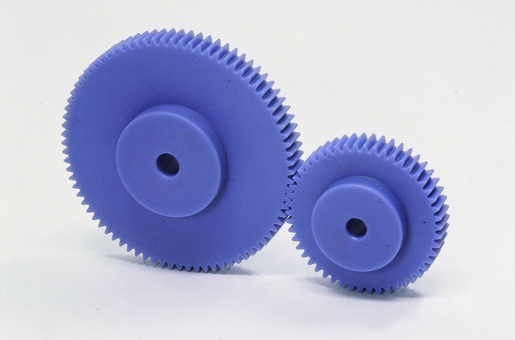
How do plastic wheels contribute to noise reduction and smooth operation in various applications?
Plastic wheels play a significant role in reducing noise and ensuring smooth operation in a wide range of applications across various industries. Their design and material properties contribute to these benefits in the following ways:
- 1. Low Friction: Plastic wheels typically have low friction coefficients when in contact with surfaces. This characteristic minimizes the generation of frictional noise during movement. As a result, plastic wheels roll quietly and smoothly.
- 2. Precision Bearings: Many plastic wheel assemblies feature precision ball bearings or roller bearings. These bearings reduce rotational resistance and provide a smooth, friction-free rotation, further contributing to noise reduction and smooth operation.
- 3. Vibration Dampening: Plastic materials have natural vibration-dampening properties. When used in wheels, they can absorb and dissipate vibrations caused by uneven surfaces, reducing the transmission of vibration-related noise to the surroundings.
- 4. Floor Protection: Plastic wheels are gentle on flooring surfaces. They do not scuff, scratch, or mark floors, which is essential in applications where floor protection and aesthetics are important, such as in homes, offices, and healthcare facilities.
- 5. Absence of Metal-to-Metal Contact: Unlike metal wheels, plastic wheels do not produce noise through metal-to-metal contact with surfaces. This lack of contact noise makes plastic wheels quieter and more suitable for noise-sensitive environments.
- 6. Lightweight Construction: Plastic wheels are often lighter than metal alternatives. Their reduced weight places less stress on equipment, resulting in less noise generated by impacts or vibrations when wheels encounter obstacles or uneven terrain.
- 7. Non-Marking Materials: Some plastic wheels are designed with non-marking materials that prevent them from leaving marks or streaks on floors. This feature is valuable in applications where maintaining a clean and unblemished appearance is a priority.
- 8. Custom Tread Design: Plastic wheels can have customized tread patterns that optimize grip and reduce noise. Treads with unique designs can minimize rolling resistance, improve traction, and contribute to quieter operation.
- 9. Moisture Resistance: Plastic wheels do not absorb moisture, which can affect the performance of certain materials like rubber. This moisture resistance ensures consistent operation even in damp conditions.
- 10. Versatility: Plastic wheels are versatile and can be tailored to specific applications. By selecting the right plastic material, bearing type, and tread design, manufacturers can optimize plastic wheels for noise reduction and smooth operation in a variety of settings.
Overall, the noise reduction and smooth operation provided by plastic wheels make them suitable for applications where minimizing noise pollution, ensuring comfort, and maintaining floor integrity are essential considerations.

Can you describe the factors to consider when selecting plastic wheels for specific applications?
Selecting the right plastic wheels for specific applications involves considering several crucial factors to ensure optimal performance and durability. Here are the key factors to keep in mind:
- 1. Load Capacity: Determine the weight that the wheels will need to support in your application. Choose wheels with a load capacity that comfortably exceeds the maximum expected load to prevent overloading and premature wear.
- 2. Wheel Diameter: The diameter of the wheel affects its stability, ease of rolling, and ability to overcome obstacles. Select a wheel diameter that suits the terrain and surface conditions in your application.
- 3. Tread Design: Consider the tread pattern on the wheel. Smooth treads offer lower rolling resistance, while treaded or ribbed designs provide better traction. Choose the tread type that aligns with your application’s requirements.
- 4. Material Selection: Plastic wheels are available in various materials, such as polyurethane, polypropylene, and nylon. The choice of material should consider factors like durability, impact resistance, chemical resistance, and temperature resistance based on your application’s environment.
- 5. Bearing Type: Determine the bearing type used in the wheels. Precision bearings, like ball bearings or roller bearings, reduce friction and ensure smooth rolling. Choose bearings appropriate for your application’s load and usage frequency.
- 6. Environment: Assess the operating environment. Consider factors such as exposure to moisture, chemicals, extreme temperatures, and potential corrosion. Select wheels that are suitable for the conditions they will encounter.
- 7. Floor Protection: If your application involves rolling on delicate flooring, consider wheels with softer materials or non-marking properties to protect the floor from damage or marking.
- 8. Mobility and Maneuverability: Evaluate the required mobility and maneuverability of your equipment or vehicle. Swivel casters may be needed for tight spaces, while fixed wheels offer stability in straight-line movement.
- 9. Noise Level: Consider the noise level generated by the wheels. Some applications, like office furniture, require quiet operation. Choose wheels designed to minimize noise if noise is a concern.
- 10. Maintenance: Assess the maintenance requirements of the wheels. Some wheels may require regular lubrication or cleaning, while others are low-maintenance. Ensure that the maintenance demands align with your operational capabilities.
- 11. Mounting and Attachment: Check the compatibility of the wheel’s mounting and attachment method with your equipment or vehicle. The design should securely attach to prevent wobbling or detachment.
- 12. Budget: Consider your budget constraints. Different types of plastic wheels come at various price points. Balance your budget with the need for quality and durability.
By carefully evaluating these factors and selecting plastic wheels that align with your specific application’s requirements, you can ensure that your equipment or vehicle operates optimally, efficiently, and safely.


editor by Dream 2024-05-02